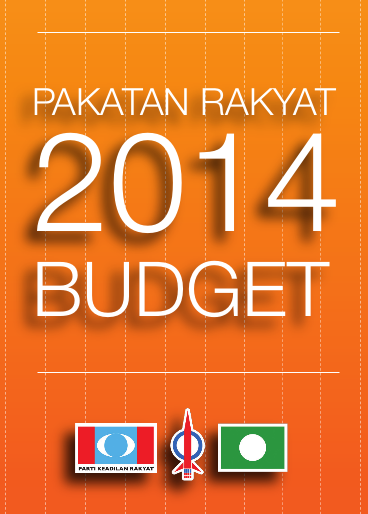Is the fall in Malaysia's ranking in the WEF's Global Competitiveness Report that the ETP and the GTP is not working?
PEMANDU and its CEO, Dato’ Seri Idris Jala, have consistently used the findings from the World Economic Forum’s (WEF) Global Competitiveness Report to show that the GTP and the ETP is yielding positive fruits. The fact that Malaysia’s ranking improved from 26 in 2011 to 21 in 2010 was featured prominently in the ETP’s Annual Report 2012.
The recently released 2012 / 2013 WEF Global Competitiveness Report unfortunately shows Malaysia slipping down the ranks again. Malaysia’s ranking fell by 4 places, from 21 to 25, as a result of being overtaken by Korea, Luxembourg, New Zealand and the United Arab Emirates. At the same time, Malaysia’s score fell slightly, from 5.08 in 2011 to 5.06 in 2012. This was reflected in the fact that out of the 148 indicators used by the WEF to compile this ranking, Malaysia experienced in fall in its ranking in 77 indicators compared to a rise in its ranking in only 48 indicators with its ranking in the remaining 23 indicators remaining unchanged.
There have been some noticeable improvements no doubt and PEMANDU should be given some credit for this. For example, the number of procedures to start a business and the number of days to start a business have decreased from 9 and 17 in 2011 to 4 and 6 in 2012, respectively.
But there far more areas which fall under the purview of the ETP and the GTP where Malaysia’s ranking has fallen.
For example, under the “Wastefulness of government spending” indicator which covers both the Fighting Corruption National Key Results Area (NKRA) as well as the Public Finance Reform Strategic Reform Initiative (SRI), Malaysia’s ranking fell from 12 to 19.
Under the “Business Costs of crime and violence” indicator which falls under the Reducing Crime NKRA (an indicator which was highlighted in the GTP Annual Report 211), Malaysia’s ranking fell from 63 to 69. The “Organized Crime” indicator also showed Malaysia’s ranking falling from 54 to 60.
Malaysia’s “Overall Infrastructure” ranking fell by 6 places, from 26 to 32. More significantly, despite the efforts of the Improving Rural Basic Infrastructure (RBI) NKRA, Malayisia’s ranking in the “Quality of Roads” indicator fell by 9 places, from 18 to 27.
Our “Macroeconomic environment” ranking fell from 35 to 26 and more worryingly, the “Government’s Budget Balance position” which falls under the Public Finance Reform Strategic Reform Initiative (SRI) fell by 14 spots, from 96 to 110.
Our ranking in the “Intensity of Local Competition” and the “Extent of Market Dominance” - both of which fall under the Competition, Standards and Liberalization SRI - fell from 26 to 36 and from 14 to 19, despite the introduction of the Competition Act 2010.
Our “Labor Market Efficiency” ranking, which is under the Human Capital Development SRI, dropped by 4 places from 24 to 20. Our “Women in Labor Force, Ratio to Men” ranking, already at a worrying 114, fell further to 119.
Lastly, our “ICT use” and our ‘Technological Readiness” rankings, which included some of the initiatives under the Communications, Content and Infrastructure (CCI) NKEA, fell from 57 to 68 and from 44 to 51 respectively. Our rankings in two important sub-indicators – “Broadband Internet Subscriptions” and “International Internet Bandwidth” – fell from 62 to 68 and from 60 to 83 (a whopping fall of 23 places) respectively.
The table below summarizes the key areas involving the GTP and ETP which have experienced noticeable falls in Malaysia’s ranking.
| Indicator | Change in Malaysia’s WEF GCR ranking (from 2011 to 2012) | NKRA / NKEA / SRI | ETP / GTP |
| Wastefulness of government spending | Fell from 12 to 19 | Fighting Corruption NKRA & Public Finance Reform SRI | ETP & GTP |
| Business costs of crime and violence | Fell from 63 to 69 | Fighting Crime NKRA | GTP |
| Organized Crime | Fell from 54 to 60 | Fighting Crime NKRA | GTP |
| Quality of roads | Fell from 17 to 27 | Rural Basic Infrastructure NKRA | GTP |
| Government’s Budget Balance position | Fell from 96 to 110 | Public Finance Reform SRI | ETP |
| Intensity of local competition | Fell from 26 to 36 | Competition, Standards and Liberalization SRI | ETP |
| Extent of market dominance | Fell from 14 to 19 | Competition, Standards and Liberalization SRI | ETP |
| Labor Market Efficiency | Fell from 20 to 24 | Human Capital Development SRI | ETP |
| Women in Labor Force, Ratio to Men | Fell from 114 to 119 | Human Capital Development SRI | ETP |
| ICT use | Fell from 57 to 68 | Communications, Content and Infrastructure (CCI) NKEA | ETP |
| Technological readiness | Fell from 44 to 51 | Communications, Content and Infrastructure (CCI) NKEA | ETP |
| Broadband Internet Subscriptions | Fell from 62 to 68 | Communications, Content and Infrastructure (CCI) NKEA | ETP |
| International Internet Bandwidth | Fell from 60 to 83 | Communications, Content and Infrastructure (CCI) NKEA | ETP |
Given PEMANDU CEO’s promise that the ETP and the GTP should deliver ‘Big Fast Results’, he should also explain why the ETP & GTP has not only failed to further improve Malaysia’s ranking in the WEF GCR 2012 but that Malaysia’s ranking has fallen by 4 positions, caused partly by falls in rankings in indicators which are under the purview of the ETP and GTP.
